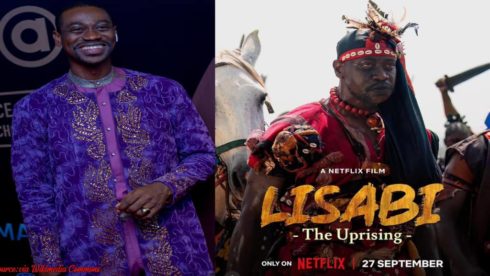In a recent social media outburst, Nigerian musician Portable made a provocative statement claiming his wealth surpasses that of Aliko Dangote, Africa’s richest man. Portable, known for his controversial and attention-grabbing behavior, asserted that his contributions to his community, such as fixing local roads, demonstrate his wealth and generosity. He directly challenged the public perception of Dangote’s wealth, questioning how many people the billionaire has actually helped in comparison to his own local impact.
Portable’s assertion is grounded in his recent efforts to support his immediate community. He detailed how he personally financed the repair of roads in his neighborhood, using his own resources to improve local infrastructure. This act, he argues, shows a form of wealth that is more directly beneficial to the people around him than merely accumulating assets or money.
Dangote’s Philanthropic Contributions
Aliko Dangote, a prominent Nigerian businessman, has a well-documented history of philanthropy and investment in large-scale projects across Africa. His charitable foundation, the Dangote Foundation, has funded numerous initiatives in health, education, and economic development. Notable among these are significant contributions to healthcare infrastructure, educational scholarships, and disaster relief efforts, which have positively impacted thousands of lives.
Dangote’s wealth is often measured by his investments in industries such as cement, sugar, and flour, which contribute to substantial economic growth and employment opportunities in the region. His philanthropy, though less visible on a daily basis, represents a structured and strategic approach to addressing large-scale issues and creating lasting benefits for communities across the continent.
Portable’s Community Impact
Portable’s claim of surpassing Dangote in wealth is rooted in his visible, localized impact. The musician highlighted a specific instance where he used his financial resources to personally address a community need, such as road repairs. His direct involvement in these efforts illustrates a hands-on approach to community support that contrasts with the more expansive but less immediately visible philanthropy of larger figures like Dangote.
By addressing immediate, tangible needs in his local area, Portable argues that his contributions are more meaningful and impactful at the grassroots level. His narrative emphasizes the importance of local, direct action and personal engagement in addressing community issues, framing his efforts as a more relatable and accessible form of wealth distribution.
Public Perception of Wealth and Philanthropy
The debate between Portable’s and Dangote’s approaches to wealth and philanthropy highlights differing public perceptions of what constitutes meaningful wealth. Portable’s focus on direct, personal contributions contrasts with Dangote’s broader, strategic philanthropic efforts. This comparison raises questions about the nature of wealth and the value of different forms of contribution.
Public perception often values the visible, immediate impact of local contributions, as seen in Portable’s case, over the more abstract, long-term benefits provided by larger-scale philanthropic endeavors. This dichotomy underscores the challenge of measuring and comparing the effectiveness of different approaches to using wealth for social good.
Impact of Local vs. Large-Scale Philanthropy
The contrast between Portable’s local actions and Dangote’s large-scale philanthropic initiatives presents an interesting discussion on the effectiveness of different philanthropic models. Local contributions can offer immediate benefits and foster a sense of community support, while large-scale philanthropy addresses systemic issues and creates widespread, albeit less visible, change.
Both approaches have their merits, depending on the context and goals of the philanthropic efforts. Local actions like Portable’s can build trust and direct support, whereas large-scale initiatives by figures like Dangote can create systemic changes that benefit larger populations over time. Understanding the impact of each model helps in evaluating the overall effectiveness of various philanthropic strategies.
The Role of Public Figures in Shaping Wealth Perceptions
Public figures like Portable and Dangote play a significant role in shaping societal views on wealth and philanthropy. Portable’s statements reflect a growing trend towards valuing direct, personal contributions over traditional forms of wealth accumulation. Conversely, Dangote’s established philanthropic work underscores the impact of strategic investment in broader societal issues.
These differing perspectives highlight the evolving nature of public expectations and the ways in which wealth can be perceived and utilized. As society continues to value both personal engagement and large-scale contributions, understanding these dynamics is crucial in evaluating the roles and impacts of wealthy individuals in shaping societal outcomes.
Table of Contents
Discover more from OGM News NG
Subscribe to get the latest posts sent to your email.














